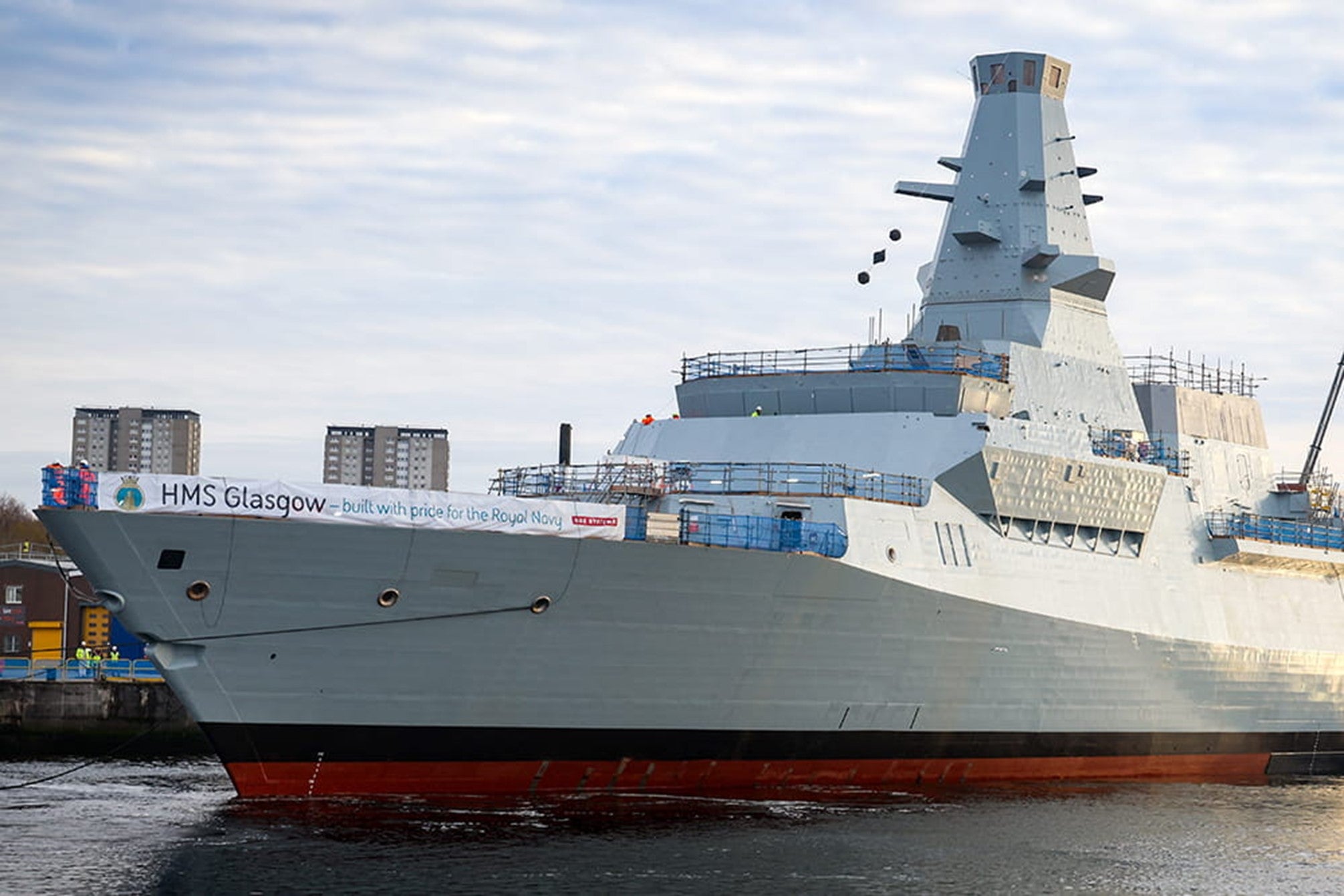
Tensions are mounting at the heart of the Clyde shipyards as over 30 contractors crucial to the Type 26 frigate project prepare to initiate strike action in the new year.
The dispute, revolving around pay and conditions, has ignited a debate over rates and equality, focusing on the challenges faced by workers employed by CBL Cable Contractors Limited.
New year strike looms over Type 26 frigate project
In a revelation that casts a shadow over the Clyde shipyards, Unite, Scotland’s trade union, has confirmed that a looming dispute over pay and conditions is set to escalate into a full-fledged strike. Over 30 members contracted to construct the new Type 26 frigate are at the centre of this turmoil, employed by CBL Cable Contractors Limited at the BAE Systems Govan and Scotstoun shipyards.
This is another setback for the programme, as the Royal Navy’s Type 26 frigate has been continuously delayed. As per the latest information, it is said that the class will reach its initial operational capability by October 2028 instead of October 2027 at an extra cost of £233m ($288.2m), according to GlobalData’s “The Global Naval Vessels and Surface Combatants Market 2023-2033” report.
Scheduled to unfold over multiple days, from 10 January to 27 March, 2024, the strike has its roots in a pay dispute that gained momentum in November. In a resounding show of discontent, 100% of CBL Cable workers backed the strike with an 88% turnout.
The crux revolves around the contractors’ demand for pay parity with the BAE Systems yard rate or an additional £1 per hour on top of their current pay rates. This dispute also encompasses travel-related payments, as the Clyde shipyards fall under the Joint Industry Board Agreement, which Unite argues mandates fair compensation.
Sharon Graham, Unite general secretary, asserted: “The CBL Cable workers are fully entitled to equal treatment at the Govan and Scotstoun yards. The company should stop paying lip service to the national agreement and immediately start paying the rate.”
The union stands firmly behind its members in their quest for better jobs, pay, and conditions, it said in a statement.
The Joint Industry Board Agreement, a cornerstone in the electrical contracting industry, sets standards for employment, grading, and apprentice training, including provisions for travel time and mileage allowances.
Ministry of Defence contract faces uncertainty
The impending strike challenges the UK Ministry of Defence’s £4.2bn contract with BAE Systems, raising concerns about potential disruptions to manufacturing the following five City-class Type 26 frigates for the Royal Navy in Glasgow.
In response to an inquiry sent to BAE Systems, a spokesperson said: “This is a matter between CBL, its employees and Unite. We have contingency plans in place to ensure sustained, safe, and secure operations at our site.”
The first City-class ship, HMS Glasgow, was floated off at BAE Systems Scotstoun shipyard on the Clyde. Meanwhile, the steel-cutting ceremony for the fourth Type 26 frigate, HMS Birmingham, marked the commencement of construction at the BAE Systems Govan shipyard. The third Type 26 frigate, HMS Belfast, is also under construction.
Stevie Dillon, Unite regional coordinator, emphasised the readiness of CBL Cable workers to strike for the ‘shipyard rate’: “They shouldn’t need to go on strike to get what they are owed, but make no mistake, they are fully prepared to fight for what they should be automatically getting.“
Dillon urged CBL Cable Contractors and BAE Systems to return to the negotiating table to avert further escalation in this dispute. “We would urge CBL Cable Contractors and BAE Systems to get back round the table to resolve this dispute before it further escalates.“
BAE Systems recently initiated the construction of a new ship hall to enhance the assembly process of the UK Navy’s Type 26 frigates. The facility will accommodate up to 500 workers per shift and allow simultaneous construction of two frigates, expediting the delivery of the eight Type 26 vessels by the mid-2030s.







